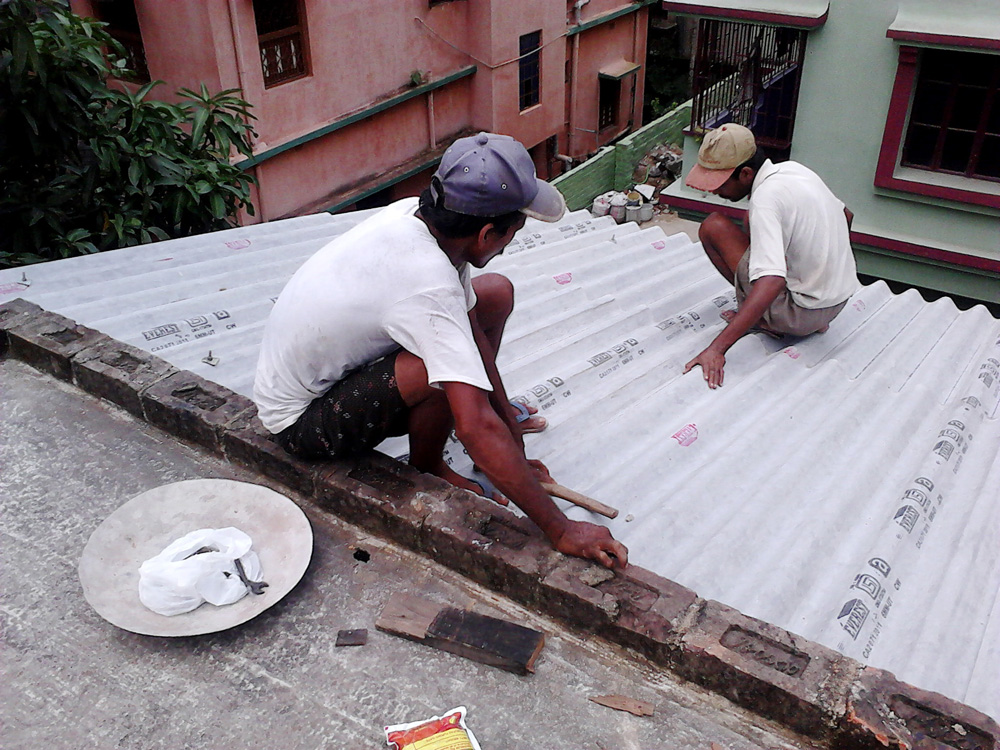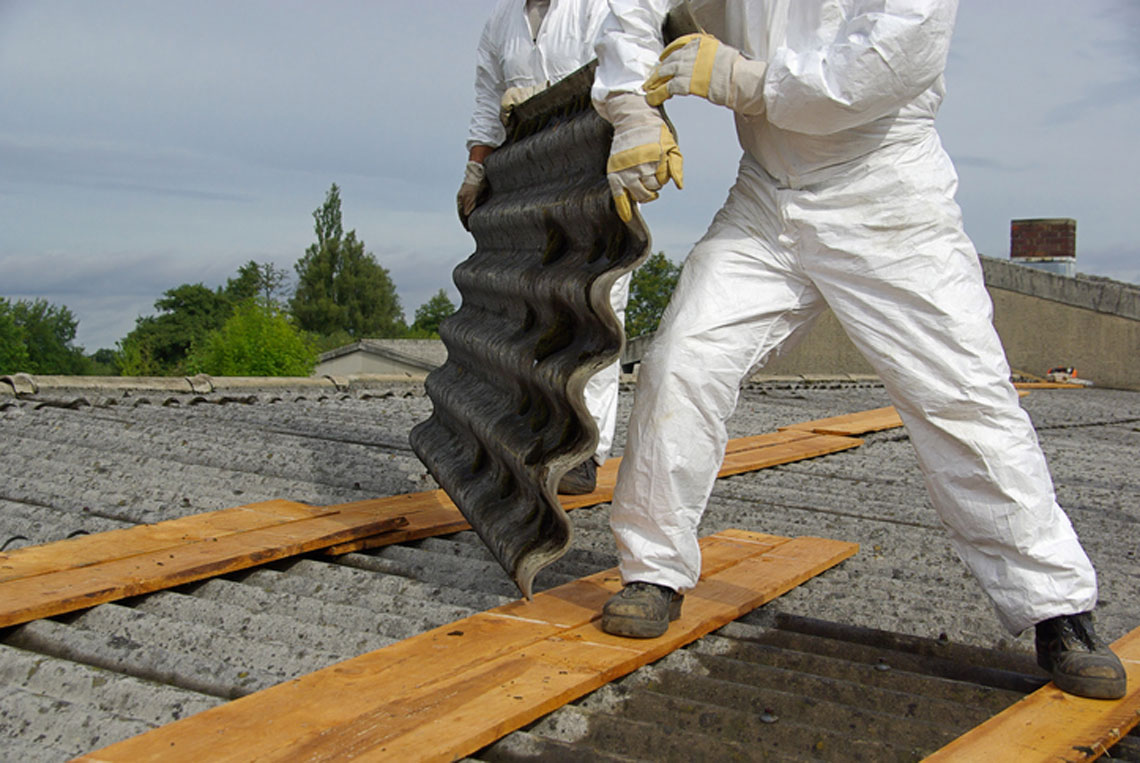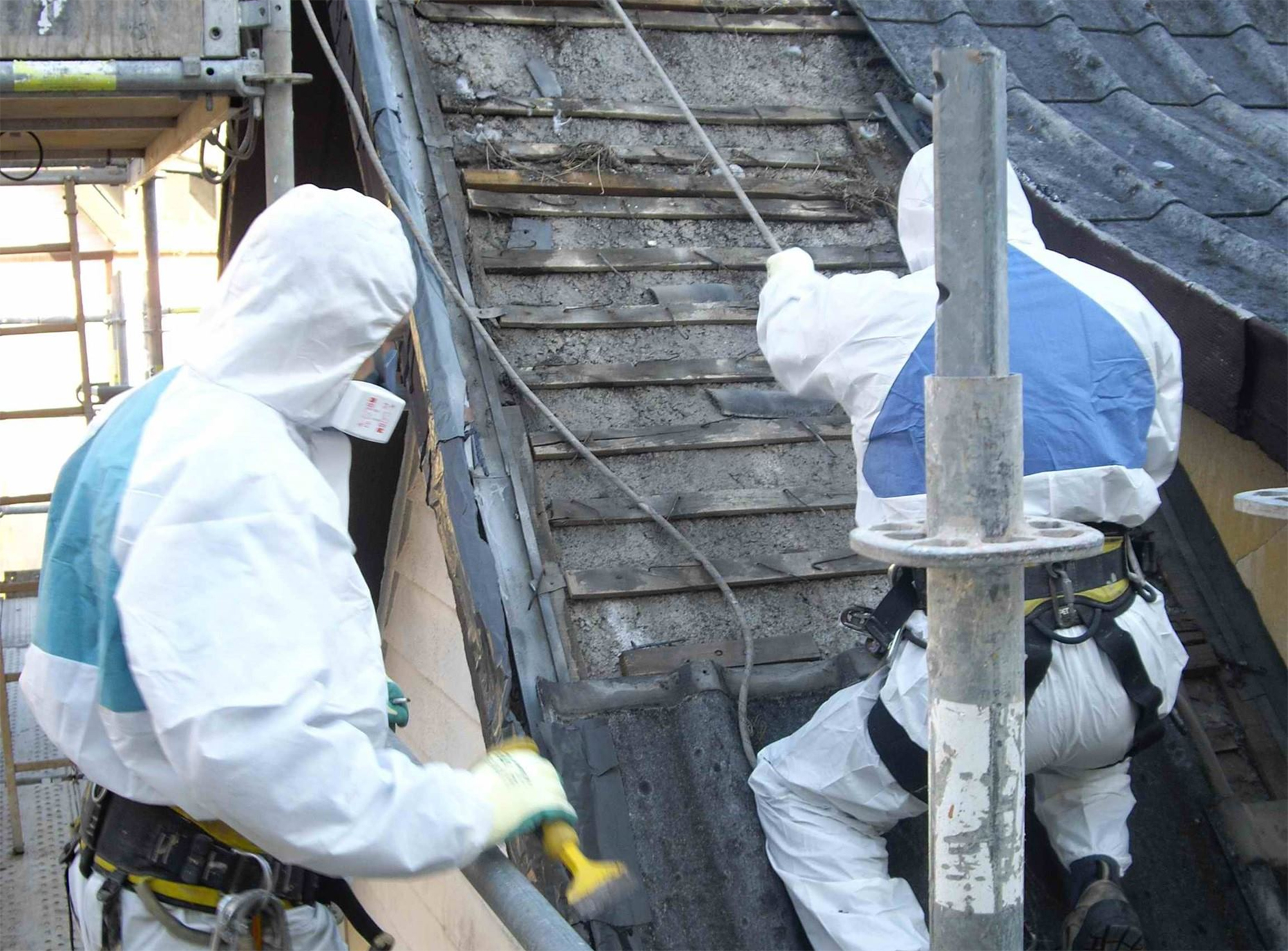Asbestos 'ad infinitum'
- The book “Asbestoaren gezurra” by the Italian journalist María Roselli, resident in Switzerland, was first published in 2007 in German, then in Spanish, in English... It has been a great success, because in addition to providing an accurate picture of asbestos victims, it describes very well the interests of the asbestos industry yesterday and now. In the following text you have a summary of the epilogue of the book.

Unfortunately, asbestos is not a historical curiosity. No one could really imagine that the huge number of victims in the industrialized countries would be enough to take the deadly fibre out of global trade. But it's quite the opposite. (…) Asbestos consumption has increased exponentially in many developing countries. There is a kind of competition to gain advantage over the ban on Western countries. But it is also a consequence of the cost: Asbestos is much cheaper than its substitute! (…)
Processing and extraction of asbestos is still permitted in 73 per cent of the member countries of the World Health Organization (WHO) and in 36 per cent it is still very active. According to the WHO, 125 million people worldwide are exposed to asbestos in their jobs. The human price to pay is terrible. (…)
The asbestos tragedy of these countries is not only the fault of unscrupulous companies, which pretended to be safe, but they knew better than anyone who was not, but of the largest international organization. These organizations are obsessed with the propaganda of the multinational asbestos companies, many years after the first ban imposed by some countries. The asbestos lobby continues to use old tricks in developing countries to influence the political process of finding a solution: there are still “scientific” studies that claim that chrysotile (white asbestos) is not harmful.
The asbestos lobby continues to use old tricks in developing countries to influence the political process of finding a solution: there are still “scientific” studies claiming that chrysotile (white asbestos) is not harmful.
Thus, it is still possible for a government to devour the lie of “controlled use”, and it continues to persist in spreading the stories of asbestos supposedly certain that the Swiss companies disseminated in their day. (…)
The local “unions” of Asbestos cement workers are playing an incomprehensible and uncertain role in the next episode of this tragedy. One example: When the WHO and the International Labour Organization supported the asbestos ban campaign in 2006, the asbestos cement unions in Russia, white Russia, Azerbaijan, Kazakhstan, Kyrgyzstan, Ukraine and Tajikistan created an institutional umbrella called the Alliance of the Crucible Unions, apparently to support the fibrocement companies. (…)
Protection of scarves by asbestos
If “controlled use” measures are not feasible in industrial countries with better occupational health, how will they work in other countries where there is no limit for substances? (...)
Today, in most Asian countries, people are processing asbestos without any kind of protection: In China, people who work at home, usually peasants and their wives, classify the asbestos fibers in their living room and then return them to the factory to be processed there. Workers in the Indian factories cut the asbestos bags with knives and open them by hand, then break the compact fiber with a wooden hammer before mixing it with cement. (...) There are hundreds of thousands of people working with their mouths covered only with scarves.
Today, in most Asian countries, people are processing asbestos without any kind of protection: In China, people who work at home, usually peasants and their wives, classify the asbestos fibers in their living room and then return them to the factory to be processed there.
Hope of the Rotterdam Convention
What can be done to stop the insanity of asbestos in developing countries? Laurie Kazan-Allen, a pioneer in the fight against asbestos and coordinator for years of the International Secretariat for the Prohibition of Asbestos, believes that it would be an important step to include chrysotile in the Rotterdam Convention, adopted in 1998. (...)
But according to the agreement, developing countries can block the importation of products that they cannot safely use (...) and the lying of asbestos clings to life with coughing, in aeternum, indestructible and perpetual.
[In 2017, the inclusion of chrysotile or white asbestos in the list of pollutant ban substances in the Rotterdam Convention was refused for the sixth time at the request of India, Russia, Kazakhstan, Kyrgyzstan, Syria and Zimbabwe.]
Fortunately, most industrial companies start to understand, after the many convictions, that a small exposure to asbestos fibres, without adequate respiratory protection, is sufficient to cause a serious lung disease that causes ten times more deaths than accidents at work, even... [+]
























